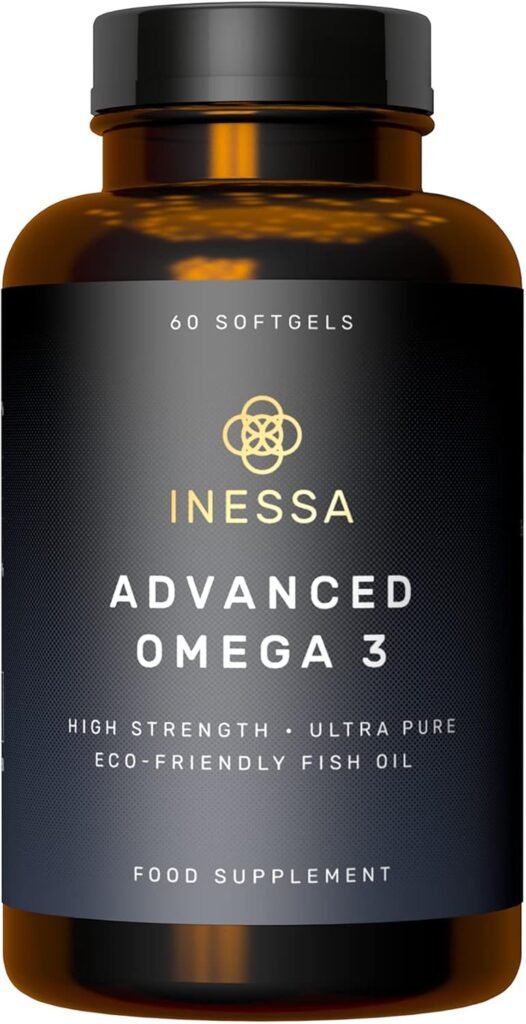High blood pressure, also known as hypertension, is a common condition that occurs when the force of the blood against the walls of the arteries is consistently too high.
This can lead to serious health issues, including heart disease, stroke, and kidney damage.
Understanding how to manage and reduce high blood pressure is crucial for maintaining overall health.
In this post, we will explore five effective ways to help lower blood pressure.
Let’s dive in!
What Is High Blood Pressure?
High blood pressure is often referred to as a “silent killer” because it usually has no noticeable symptoms.
It is defined as having a blood pressure reading of 130/80 mm Hg or higher.
Factors contributing to high blood pressure include genetics, poor diet, lack of physical activity, obesity, stress, and excessive alcohol consumption.
Regular monitoring and lifestyle changes can help manage this condition effectively.
5 Ways to Reduce High Blood Pressure
1. Incorporate Omega-3 Fish Oils
Omega-3 fatty acids, found in fish oil, have been shown to reduce inflammation and improve heart health, making them beneficial for managing high blood pressure.
These healthy fats can help lower triglycerides, reduce arterial stiffness, and promote better blood flow.
Consider taking a high-quality omega-3 fish oil supplement or incorporating fatty fish like salmon, mackerel, and sardines into your diet at least twice a week.
Out of all of the fish oils I’ve tried, Inessa’s Advanced Omega-3 is the best I’ve tried.
Inessa’s Omega 3 Fish Oil is an excellent choice for managing high blood pressure due to its high-strength formula, providing 1,200 mg of omega-3s per capsule, which includes 840 mg of EPA and DHA—well above the recommended daily levels.
With exceptional purity achieved through advanced purification processes, this supplement is free from harmful contaminants and oxidation products, ensuring maximum freshness and safety.
Additionally, Inessa’s commitment to sustainable sourcing means that the fish oil is derived from wild anchovies, known for their higher purity, making it a responsible and effective option for heart health.
Simply take 1-2 soft gels per day and you’re good to go!
2. Maintain a Healthy Diet
Eating a diet rich in fruits, vegetables, whole grains, and lean proteins can significantly impact blood pressure levels.
The DASH (Dietary Approaches to Stop Hypertension) diet, which emphasizes these food groups, is particularly effective.
Focus on whole, nutrient-dense foods while reducing sodium intake.
Aim for a diet high in potassium, magnesium, and fiber, which can help lower blood pressure.
Avoid processed foods high in salt and sugar.
3. Exercise Regularly
Regular physical activity strengthens the heart and improves circulation, which can lead to lower blood pressure.
Even moderate exercise can make a significant difference.
Aim for at least 150 minutes of moderate-intensity aerobic activity each week, such as brisk walking, cycling, or swimming.
Incorporating strength training exercises at least twice a week can also be beneficial.
4. Manage Stress Levels
Chronic stress can contribute to high blood pressure, so finding effective ways to manage stress is essential for overall health.
Stress can lead to unhealthy habits like overeating or excessive drinking, further exacerbating hypertension.
Practice relaxation techniques such as deep breathing, meditation, yoga, or spending time in nature.
Regularly engaging in hobbies you enjoy can also help reduce stress levels.
5. Limit Alcohol Consumption
Excessive alcohol intake can raise blood pressure and interfere with the effectiveness of blood pressure medications.
Moderation is key when it comes to alcohol consumption.
If you choose to drink, do so in moderation—up to one drink per day for women and two drinks per day for men.
Be mindful of how alcohol affects your body and consider reducing consumption if you notice an increase in your blood pressure.
Support Your High Blood Pressure
Managing high blood pressure is crucial for maintaining overall health and preventing serious complications.
By incorporating omega-3 fish oil, following a healthy diet, exercising regularly, managing stress, and moderating alcohol consumption, you can take proactive steps to lower your blood pressure.
Always consult with a healthcare professional for personalized advice and monitoring, as individual needs may vary.
With dedication and the right strategies, you can effectively manage your blood pressure and improve your quality of life.
Thank you for reading!
Affiliate Disclosure
Some of the links on this site are affiliate links. This means that if you click on the link and purchase the item, we may receive an affiliate commission at no extra cost to you. I only recommend products or services that I believe will add value to my readers, however some (not all) do pay us to be on this blog. Your support and theirs helps keep this blog running, and I genuinely appreciate it.
Medical Disclaimer
The information provided on this website is for educational purposes only and is not intended as medical advice. This blog or the writer is not a licensed healthcare professional, and the content should not be used as a substitute for professional medical diagnosis, treatment, or advice. Always consult with your physician or other qualified healthcare provider before starting any new treatment or making any changes to your healthcare routine.
